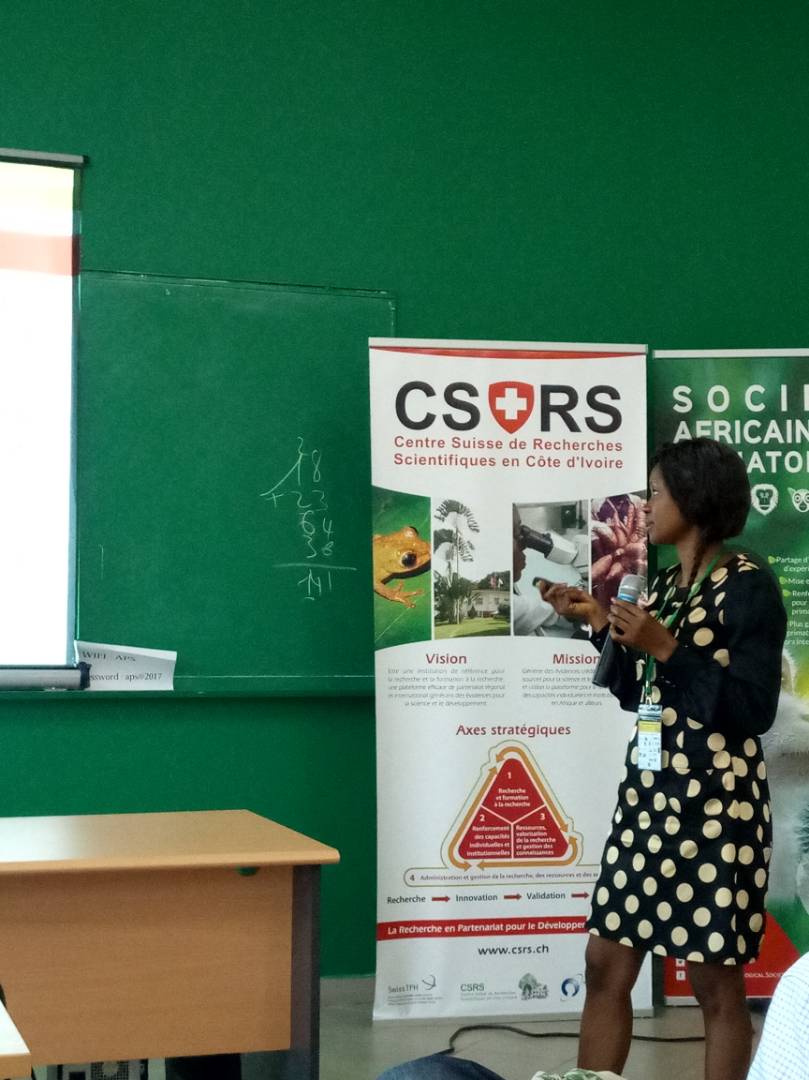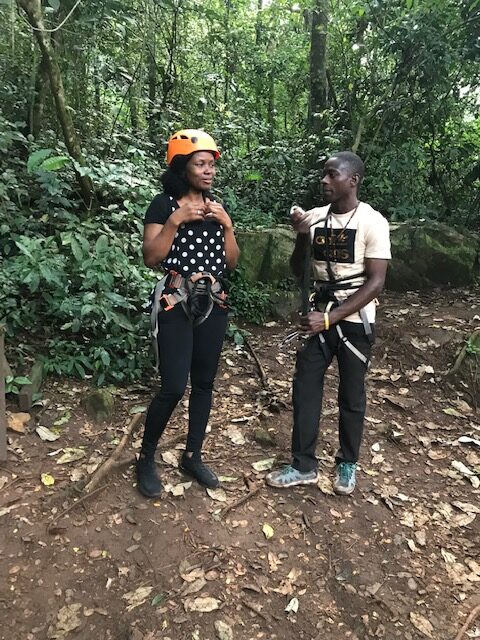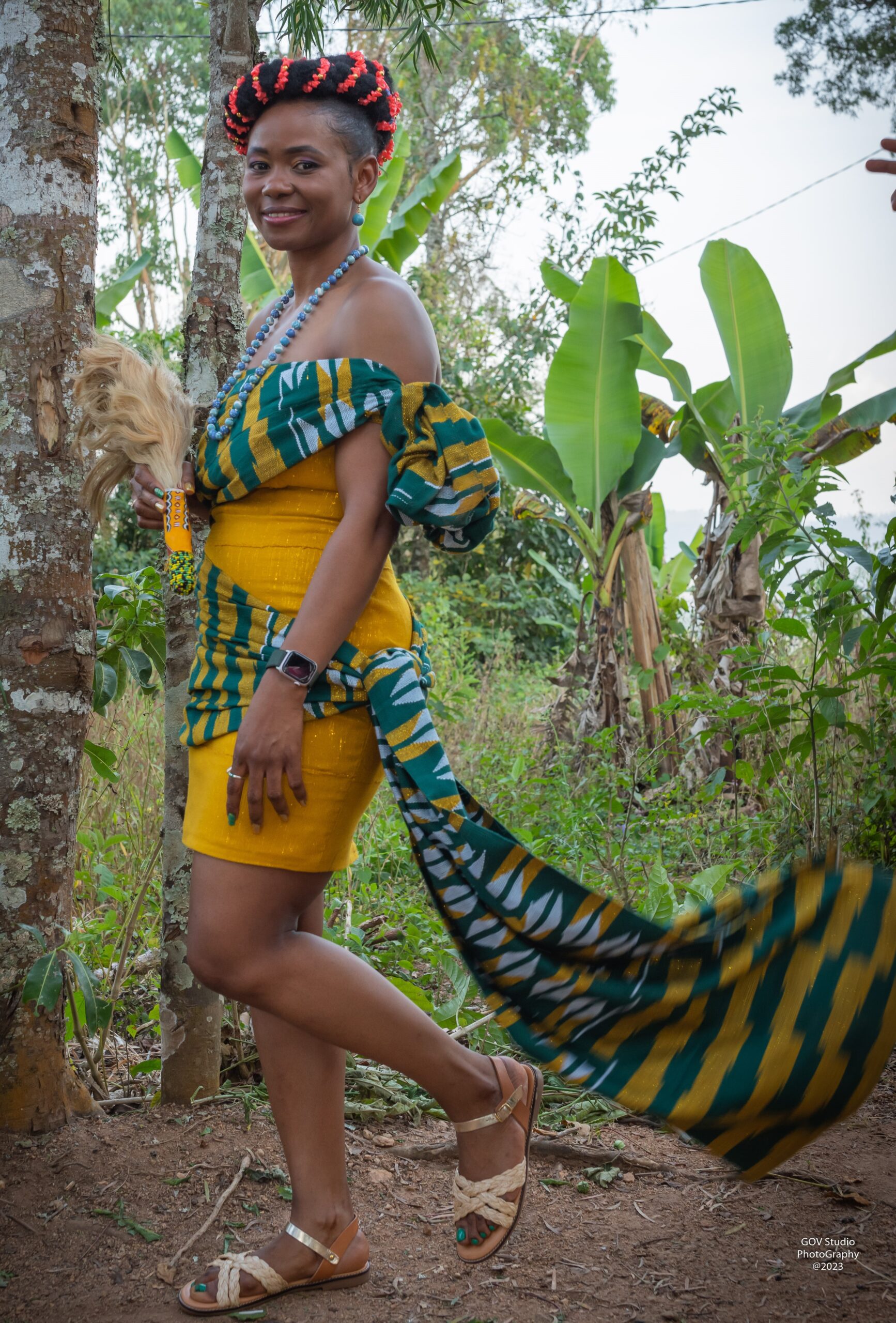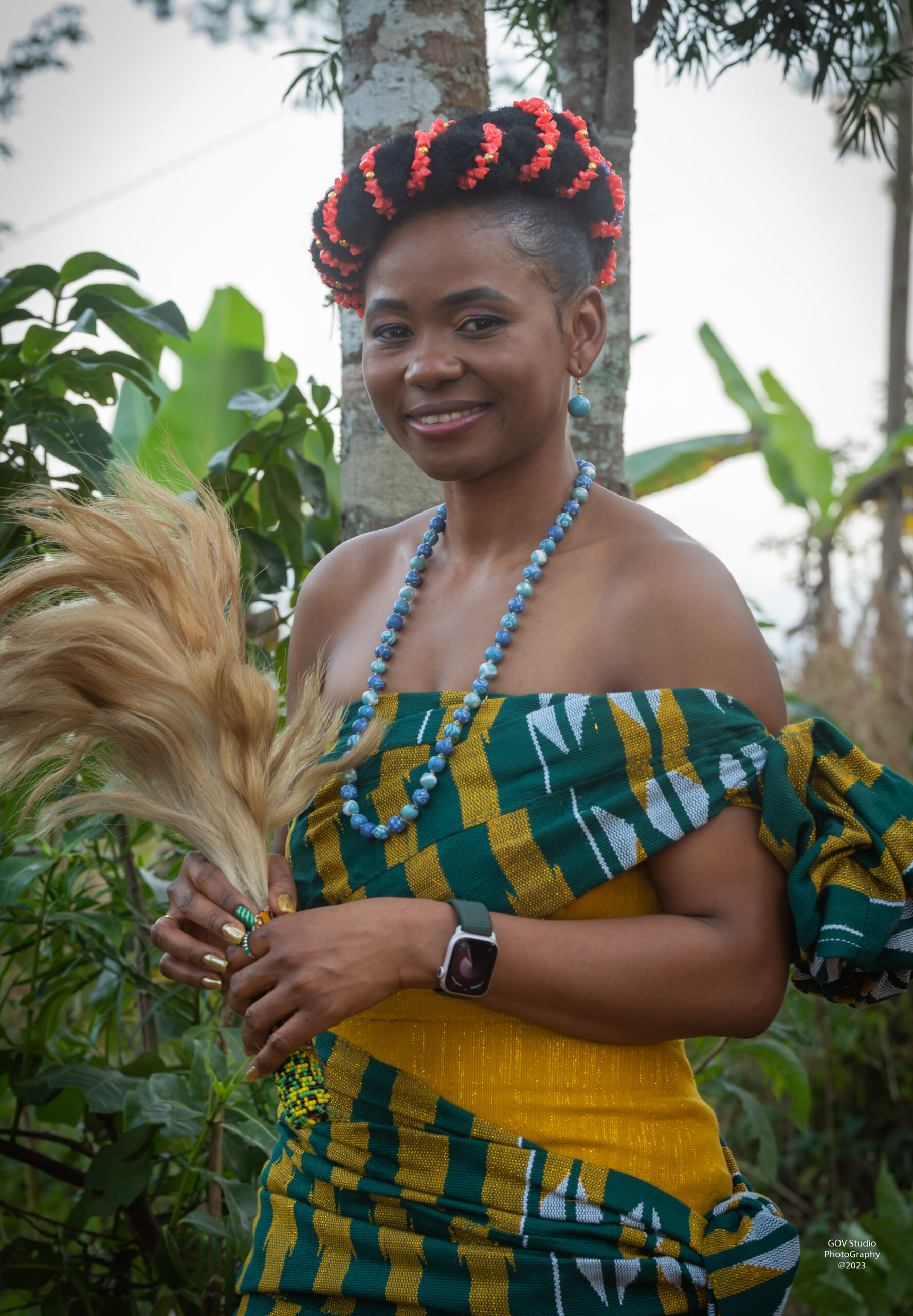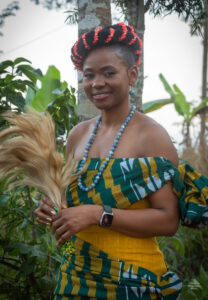RESUME
I am 34 years old, Cameroonian and a mid-career conservationist currently coordinating the Red Colobus Conservation Network (RCCN) and the implementation of the Red colobus Conservation Action Plan (ReCAP) under IUCN/SSC Primate Specialists Group, African Primatological Society and Re:wild.
I am also the Secretary General of the Cameroon Primatological Society (CPS) legally created in 2022. I have a Forest and Wildlife Engineer diploma, specialized in Terrestrial and aquatic wildlife management from the University of Dschang, Cameroon, and of a Master of Science degree in Inland Water Quality Assessment from the Autonomous University of Madrid, Spain.
I have a modest but diversified background in wildlife management and conservation, ethnobiology and traditional ecological knowledge, high conservation value assessments, primatology, Sustainable Forest exploitation (logging), social dimensions of natural resources management and water resources management. Passionate for primate conservation, in 2020, I raised funds and facilitated the creation of the Cameroon Primatological Society by organizing the 1st General Assembly and legalizing the CPS. I have been involved in field-based wildlife assessments, socio-economic studies in and around protected areas and continuously communicate conservation issues in peer-reviewed scientific publications, national and international events (workshops, seminars, meetings and hosting stands during conferences). I was recently awarded as one of the Top 100 Young African Conservation leaders. I have published 10 peer-reviewed articles.
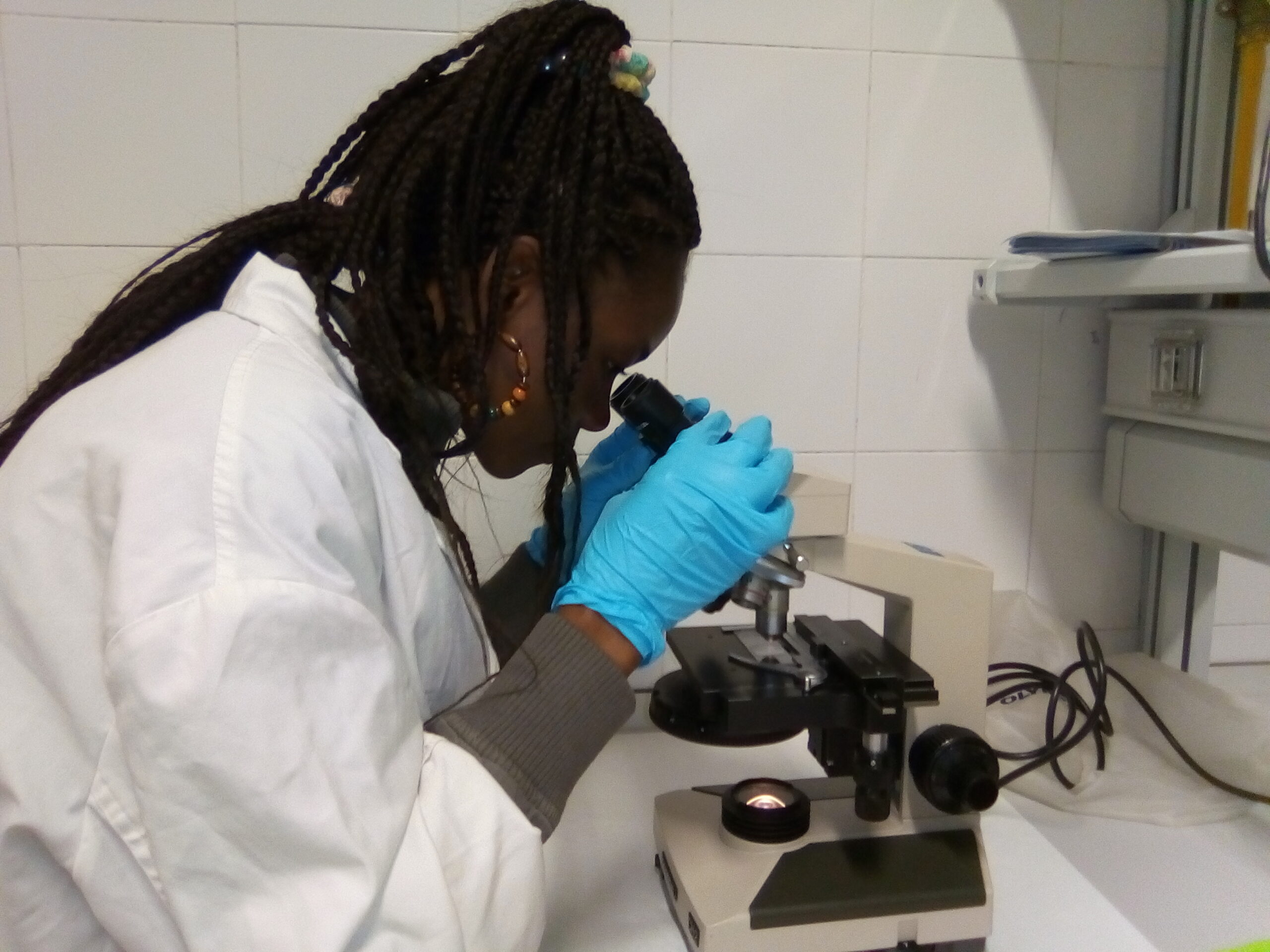
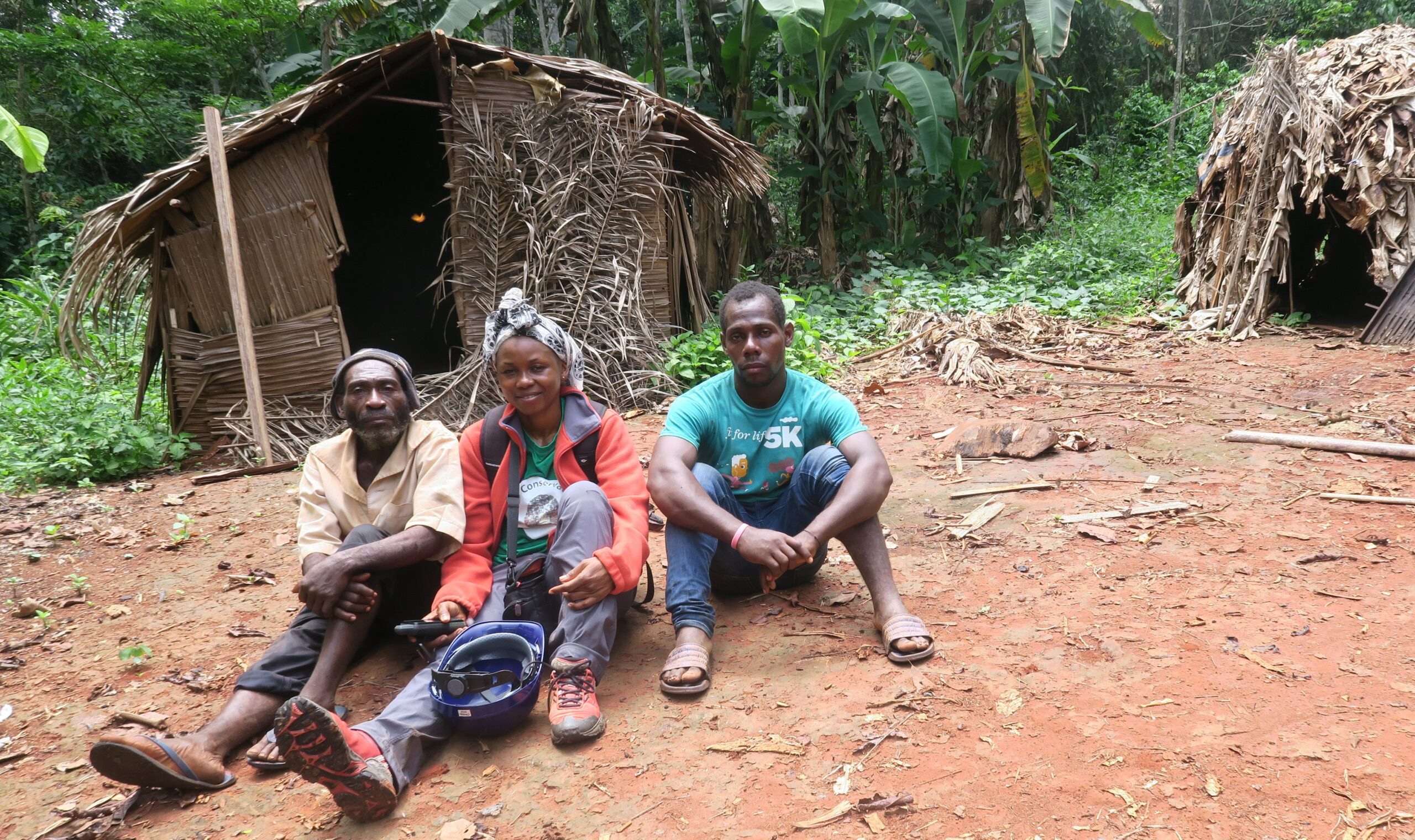
MOTIVATIONS
Current global changes in the earth’s systems on which humans rely are intrinsically linked to biodiversity loss. To ensure the sustainable futures of both people, and the forests they depend on, it is my life’s goal to contribute to the sustainable management and conservation of natural resources.
I got my Forest and Wildlife Engineer diploma, specialized in Terrestrial and aquatic wildlife from the University of Dschang, Cameroon (2014) with a GPA of 3.61, and my Master of Science in Inland Water Quality Assessment from the Autonomous University of Madrid, Spain (2018) with a GPA of 3.57.
Through my academics, positions and research, I have learned that the challenge to operationalizing strong conservation responses is as real as the science which underlies such policy recommendations. Conservation managers need continuous up-to-date information on the co-existence and evolution of human-environmental interactions.
Research on both ecology and human behaviour is essential to informing reliable and scientifically based responses which affect human decision-making and foster conservation success.
Therefore, it is my goal to further my education through a Ph.D. and provide the evidence needed to reverse biodiversity loss.
During my undergraduate and graduate training in the fields of forestry and wildlife, I have worked to provide ethnozoological data to inform decision-making in the German-Cameroon-Nigeria Volkswagen project “Managing forest wildlife for human livelihoods in the Korup Oban hills, West-Central Africa” and assessed water basin ecology in Cameroon.
During my academic training, I completed several courses in forest ecology, animal ecology and ethology, management of protected areas and wildlife, forest biometrics, management of ecosystems and the environment, genetics and Evolution, remote sensing, GIS landscape management, environmental impact assessments, social science (anthropology), wetland management, aquatic ecology, wildlife survey methods, research methodology, water pollution, environmental effects, aquatic bioindicators, integrated monitoring and field studies, biostatistics, aquatic ecotoxicology, and more. In addition to my formal academic training, I have also completed short-term training programs on natural resource management with The Forest Trust (presently called Earthworm), PROFOREST, where I developed my skills on biodiversity and socio-economic assessments, park management and governance, conflict transformation, data processing, scientific reporting, computer modelling, laboratory work, and developing and implementing research protocols.
During my professional career, I have worked with logging companies like Rougier group- SFID and Vicwood group-CFC in Cameroon (as a social forest manager at the sustainable forest management unit) and with environmental consultancy firms like Nature + (Belgian organisation, in the quality of an independent consultant in charge of high conservation value assessments).


Under the Red Colobus Coservation Initiative, I am the technical and administrative coordinator for the implementation of the red colobus species conservation action plan and an international network of dedicated range-wide actors operating across the central belt of the African continent (home to 18-taxa of red colobus monkeys). Here, I am responsible for sourcing collaboration with conservation partners and organizations, fundraising (including project proposal elaboration and review), hosting, organizing, and steering meetings with international partners and members, sustaining digital platforms, planning and organizing duties, monitoring and evaluating achievements, reporting progress and catalyzing teams to propose and implement strategic and operational orientations and supporting equality in growth and development of the conservation network.


I am currently a Ph.D student at the Interdepartmental Doctoral Program in Anthropological Sciences (IDPAS) (Biological Anthropology: Behavior Track) at Stony Brook University, NY, US.
My Advisor is Dr. Patricia Wright, Herrnstein Professor of Conservation Biology; Founder and Executive Director of the Institute for the Conservation of Tropical Environments, Stony Brook University, NY, US.
